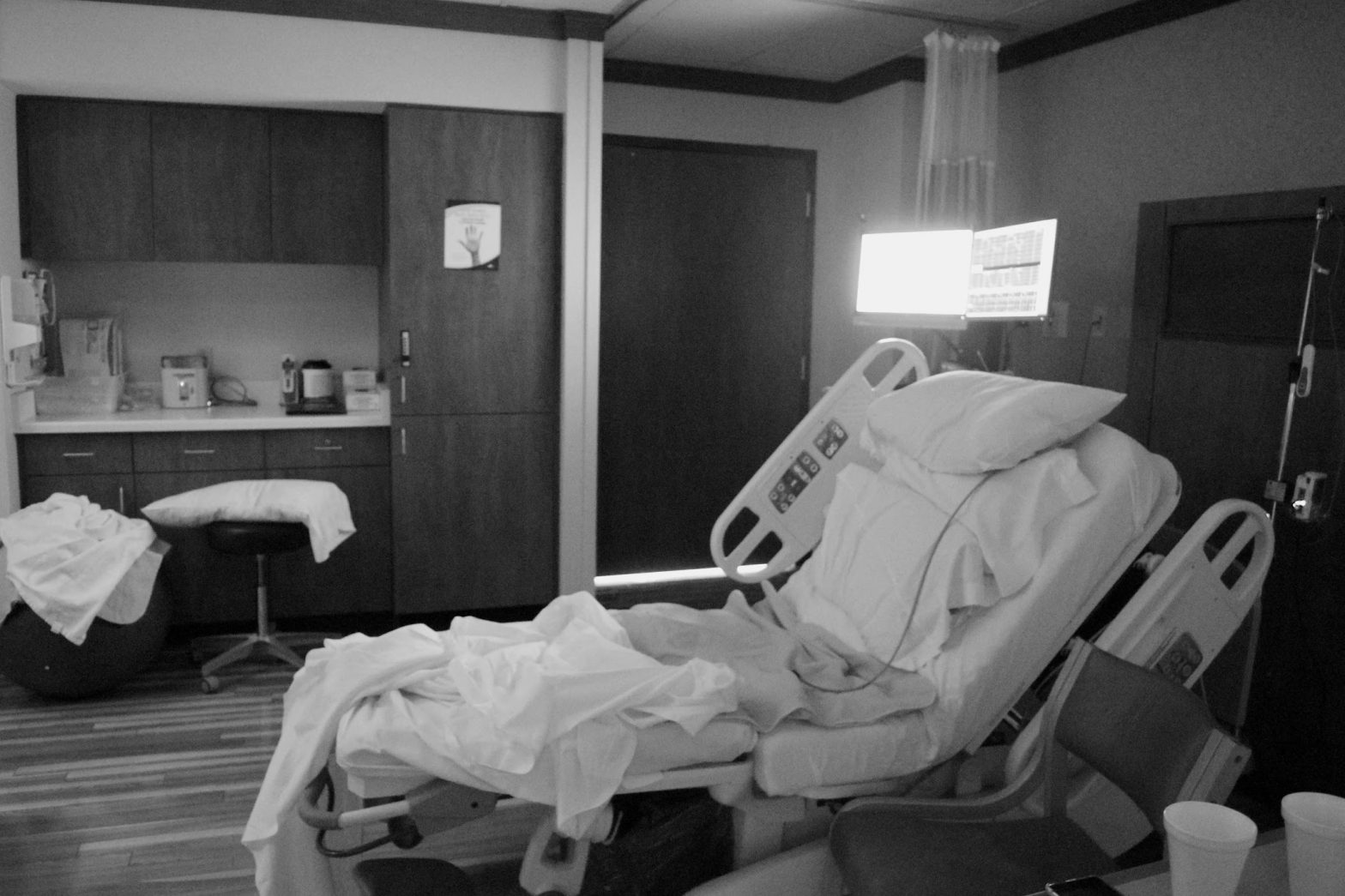Last month, my husband and I welcomed our second precious little baby boy into the world! And while this experience is impossible to fully capture in words, something I can say is that it has led me to marvel once again at the beauty and power of relationship, and of being present in relationship—with others, as well as ultimately with God. It also has led me to rejoice anew in the hope of the Gospel.
I had a grueling and somewhat traumatizing first labor, although thankfully both my first baby as well as I ended up being okay in the end. Yet after this experience, “horrifying” was the main word that came to mind, unbidden, whenever I thought of labor. And even though I dearly wanted to have another baby, as soon as I discovered I was pregnant for the second time, I began having nightmares about having to give birth. During my first labor, my experience of intense pain led me to panic, struggle for control, fight against the pain, and turn inward—which left me feeling alone and overwhelmed even though my husband, my doula, and my nurses were all in the room to support me. Although I was present physically, emotionally I was completely alone and checked out. As I learned from processing with my husband and doula later on, they said they too felt I was unreachable, and that they felt helpless to help me in my pain as I was turned so far inward in spite of them wanting to be with me.
As my husband and I, along with our doula, processed our first birth experience and looked toward our second, we thought a lot about what we appreciated about our first experience as well as what we hoped would be different the second time around. And the main two words we came to were “present” and “trusting”. We hoped and prayed that we could have an experience in which we were more present with one another and in our experience—rather than fearful—and more trusting of one another, our support team, in the process itself, and ultimately the LORD.
Practically, there were certain exercises I practiced to help me work through some of the trauma and reactivity I felt regarding labor, including praying, talking with my husband and trusted friends to process various aspects of my experience, using the Gentle Birth program to practice mindfulness and breathing exercises and some hypnotherapy exercises, and journaling. But mostly preparing for a labor where I and my husband hoped we could be more present looked like me, as well as him, trying to be more intentional in our everyday lives in being vulnerable, present, and trusting in our relationships and our ensuing emotions. We tried to be intentional in these ways our relationships with each other, with family and friends, in our relationship with God, even in our relationship with ourselves. And as we prepared and invited more people into our experience, while we were still afraid at times, we also found that we were slowly but surely moving towards feeling more connected and hopeful—more present and trusting.
And when the long-anticipated day of labor finally came, my husband and I felt the LORD’s presence with us in such a special way even as we were present with one another, our doula, and the support staff at the hospital. While of course there were many moments of pain and difficulty, the pain and the difficulty felt “okay” instead of “horrifying” because I did not feel alone. When the pain came, instead of turning inward, I tried to invite others into my experience as well as to respond to their offers of reaching to me, helping me, and sitting with me in that space. My husband stayed with me, offering his steady and encouraging and comforting presence through the highs and lows, and we felt all the more connected in our love for one another for going through this special experience together. My doula stayed with me, offering her reassuring, comforting, and competent presence as she helped me continue on even when it felt so hard. The nurses and doctors stayed with me, offering encouragement and well as the ability to practically care for the well-being of me and my baby.
Staying present with my husband and with the rest of my support team, as well as staying present in my own emotional experience, felt incredibly vulnerable—it is hard to imagine a more physically and emotionally messy and vulnerable time of life than labor. I was tempted many times to slip back into my typical response of trying to take control and turn inward, and even moved toward this space at times. But I am so grateful my husband and support team stayed with me, beckoning me back even in these hard moments, and that overall by God’s grace I was able to respond to their invitations to presence. And the connection that came out of being present and trusting was so beautiful and richly rewarding, and made the experience of labor and delivery all the more profound and joyful. As my husband and doula and support team sat with me in my distress and proved able to hold my experience, they also rejoiced with me when the long-awaited moment of baby’s entry into the world came. What a sweet moment birth finally was, a moment that was all the sweeter for being shared amidst all of us that were in the room!
I am convinced that as is the case with so much of earthly life, my experience of relationship in labor is a small reflection of many aspects of the Gospel. During labor, my husband and my doula offered me unconditional love and presence, as well as the ability and willingness to hold my emotions and experience. Even when—in both an emotional as well as a literal physical sense—I was weak, and needy, and messy, and completely vulnerable, they never failed to stay with me. Instead of leaving me alone, or telling me to clean up or get it together, or to rely on my own strength, they entered into my experience and sat with me until labor was complete, I delivered my dear baby, and gradually I began to recover. I am unspeakably grateful, humbled, and filled with love as I think of the grace, love, and help my husband and doula extended to me even in this most tender of moments.
The power of relationship that I experience in labor provides me with a beautiful, tangible glimpse of the unconditional love and grace that God extends to us in Jesus by the power of his Holy Spirit: He invites us into relationship with him, through the cleansing work of Jesus on the cross and by the ongoing presence of the Holy Spirit. Though we were spiritually entangled and dirtied in our sin, helpless to save ourselves apart from him—as messy and as unloveable and needy as we could possibly be—he entered into relationship with us, cleansed us, welcomed us into new life, adopted us as his very sons and daughters (e.g., Eph. 1-2). And he continues to offer his presence to us in the person of the Holy Spirit (e.g., Jn. 14:16-17, 26-27); he is a God who is near (e.g., Phil. 4:5), who comforts us (e.g., 2 Cor. 1:3-4), who saves us (e.g., Jn. 3:16-17). Because he is with us, we can remain true and faithful until he returns (e.g., 1 Cor. 1:4, 7-9). And someday, once Jesus does return and make all things right, we will be perfectly in relationship with him, all sorrow will have passed, and we will rejoice with Jesus and with one another (e.g., Rev. 21:5, 22:1-5). We are not alone, and never will be. If, as I experienced in labor, relationship with fellow humans is so powerful and life-changing, even to the point of making the seemingly unbearable bearable, how much more profound is relationship with the one true God?
How thankful I am for presence and trust in relationships—relationship with loved ones, and ultimately relationship with the LORD.
*My husband and I are infinitely grateful for our doula, whose presence with us in labor made all the difference in the world!


